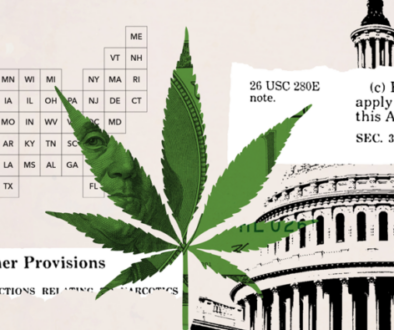DEA Rescheduling of Cannabis: How Long and What Will Happen – Realistically?

U.S. cannabis is headed for uncharted territory.
With the news that the Drug Enforcement Agency is recommending that cannabis be transferred from Schedule I to Schedule III in the Controlled Substances Act, tremendous tax consequences are about to be unleashed, with further implications for banking and interstate commerce down the line. But this transfer won’t happen overnight, and we may have a bumpy ride ahead of us before it comes about. So, let’s take a realistic look at the timeline and prepare for possible surprises.
After all, we’re talking about mixing cannabis, government regulations, and politics.
What could possibly go wrong?!
Realistic Timeline
The process for rescheduling is laid out in Section 801 of the CSA. In 2014, Hydrocodone Combination Products (HCPs) were transferred from Schedule III to Schedule II. This took almost eight months. Cannabis will be following the same process, except that the DEA has announced there will be a public hearing which the HCPs transfer didn’t have, because no one requested it. This is expected to add an additional three months, possibly longer, since cannabis is a contentious topic and there’s sure to be plenty of arguments against rescheduling.
Once the hearing process is complete, an administrative law judge will hold further hearings. Then the DEA will publish their final rule in the Federal Register. Some months later, the new rule will go into effect, and cannabis will move to Schedule III.
Total estimated timeline: approximately one year.

Tax Benefits
Right now, Section 280E of the Internal Revenue Code disallows most tax deductions other than cost of goods sold. 280E states, “No deduction or credit shall be allowed for any amount paid or incurred during the taxable year in carrying on any trade or business if such trade or business (or the activities which comprise such trade or business) consists of trafficking in controlled substances (within the meaning of schedule I and II of the Controlled Substances Act) which is prohibited by Federal law or the law of any State in which such trade or business is conducted.”
Once cannabis moves to Schedule III, 280E will no longer apply to the cannabis industry. This is exciting news! Right now, many cannabis businesses are paying upwards of 70% in federal taxes because of 280E. With 280E out of the picture, the industry will be able to contend with a normal rate of taxation, which is around 21%.
Not only that, but many cannabis states strictly follow the federal government and punish their cannabis businesses with 280E at the state level. Alaska, Arizona and Maine are some examples. 280E will go away in those states, allowing for the normal taxation of cannabis businesses with full deductions, just like with any other industry
What This Means for 2024 Tax Filings
Because we’re looking at the rescheduling taking place sometime in 2025, this year’s taxes will need to be filed under 280E. And once cannabis is transferred to Schedule III, it’s almost assured that the IRS will treat the new ruling on a go-forward basis, disallowing any attempts to change prior year tax returns. Unfortunately, clients who’d like to scale back on their estimated taxes in 2024 will need to wait until next year to consider doing so.
Possible Hiccups
The transfer of cannabis from Schedule I, where it sits with heroin and LSD, to Schedule III, where it will be treated similarly to drugs like Tylenol-codeine and anabolic steroids, is a momentous event which many believe is the most significant event in cannabis’s history in the last fifty years.
However, it’s vital to remember this is just one important step towards the full legalization and normalization of cannabis as both a recreational and medicinal product. We’re not there yet. And some hiccups may arise during the rescheduling process that could further delay it.
For one thing, there’s the possibility of a legal challenge, particularly when the DEA’s final proposed ruling goes before the administrative judge. With the forces against cannabis at the national level as strong and passionate as they are, this would not be an unexpected possibility.
A second cause for concern is that we’re in a presidential election year. If a president is elected who is unfavorable toward cannabis, they might choose to try and halt the rescheduling process. The president appoints the attorney general, and the attorney general oversees the Justice Department and the DEA. This would put such a president in a position to possibly delay or even derail cannabis’s transfer to Schedule III.
In Summary
Once cannabis is transferred from Schedule I to Schedule III, in addition to the tax benefits, there will be potential positive implications for banking and interstate commerce. 420CPA has a couple pieces coming out in the next few days that will dive more deeply into those areas, including one on Bloomberg.com, so stay tuned!
The important thing to remember is that, as with most government processes, the rescheduling of cannabis won’t happen overnight. And many bumps may appear in the road as the process moves forward. But let’s not lose sight of the ultimate truth here, which is that more than 70% of Americans now believe cannabis should be legalized. Legalization will happen within the not-too-distant future, and the demonization of cannabis will finally become a thing of the past!




